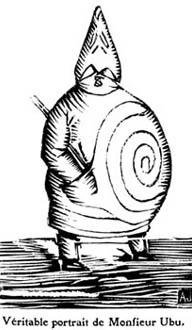User Login |
I sing of Civilization and the Man (sally v-a-v gilgamesh)The Poets' Theatre production of Gilgamesh on April 28, a dramatized reading of Yusef Komunyakaa and Chad Gracia's new stage adaptation of the Mesopotamian epic, combined elements of poetry, play reading, stage performance, and radio show. In an auditorium circled by the names of Biblical, Enlightenment, and literary forefathers, the audience took seat in front of a dark stage artfully yet minimally set with stools and music stands placed in a semi-circle around a discrete crescent of stones. A stool and script stand for the narrator stood on the left side of the stage, and grouped behind the narrator on one side and the readers on the other, musical instruments (drums, microphone, violin) and foley equipment (a pool of water) stood ready to further conjure the atmosphere of the piece. The readers/thespians wore contemporary clothing that suggested their stage personas. For example, the actor reading Gilgamesh wore a white African style cap and tunic over his jeans and converse sneakers, the actor reading The Woman of Red Scarves wore a red velvet dress, and so on. Rather than moving on or off stage as they would have during a play, the actors stood up when they were speaking in a scene and sat back down otherwise. Throughout the performance, the beautifully atmospheric musical accompaniment, narrated stage directions ("Scene 1," "Scene 2," "Gilgamesh fights the Bull of Heaven... and wins," "Humbaba's head fills half the stage"), and powerfully descriptive voice acting along with the actors' limited theatrical gestures and movements successfully created a truly dramatic movement of story and character. The acoustics of the theatre transmitted vocal inflection with warmth and clarity and at times seemed to fill the space with resonating sound and music, drawing the audience into the setting, be it forest or temple or riverside. The poetic quality of the piece lay largely in the full sensory experience of oral/visual epic drama. Death imagery (referring to the living Gilgamesh as a "bag of bones") occurred repeatedly in the dialogue as well as the physical space of the stage. The circle of stones that had signified our presence in the ancient past by the end of the performance marked a grave site. Gilgamesh's white tunic and hat, which distinguished him as superior and separate from the rest of the cast, with the possible exception of Ishtar, glowed with a deathly radiance when he mourned Enkidu. The characterizations and voice acting were powerfully simple, even simplistic. Thus the tyrant/hero king Gilgamesh was regal, arrogant, sometimes childish. His divine mother was a caring and aged woman. Ishtar, vengeful goddess of love and death, had the appearance and voice of a deceptively refined British seductress. A Walter Mitty type wearing a patterned suit and projecting a sometimes cloyingly mundane vocal persona assumed the role of various citizenry. Much like the minimalist set, the two-dimensional nature of the characters served to drive the play's action and focus attention on the themes of the work. One exception was the tonality of the actor who voiced Enkidu. His voice imbued the character with both heated strength and a sense of profound questioning that accentuated the tragedy of Enkidu's induction to humanity, his actions as a man, and his death as man. The original myth presents a powerful allegory of civilization itself, as Gilgamesh the god-king and Enkidu the man-beast together epitomize an ultimate humanity that, while struggling both internally and externally, still manages to conquer nature. Though aware of great risk, they persevere, and their very success engenders grave consequences. Gilgamesh's drive to achieve everything within his grasp is not born of malicious intent but rather stems from the demands of his personal power--a demigod king, he can therefore he must pursue his dreams and desires. Thus Gilgamesh recognizes Enkidu, his opposite and equal, as a boon, for together they can achieve more than either could alone. Enkidu's death, the first destructive check to Gilgamesh's will and a signifier of his ultimate end, devastates him. From his beginning as a willful man without useful aim (a wasteful prince, a tyrant), Gilgamesh's failure to achieve personal immortality is transmuted into his final ascension to the position of the Good King, the wise man born out of the death of the headstrong boy, the Good King who tames the forest, digs wells, builds strong walls around his city, and inscribes his tale. Thus the contradictory eternal nature of humanity itself, half bestial and half divine, constructive and destructive, ever-dying and ever-breeding, forever seeking, is memorialized and imbedded within civilization itself. Komunyakaa and Gracia's Gilgamesh departed from the force of the original epic in that it sanded down some of the rougher edges and tacked on layers of contemporary moralistic meaning, including references to evil, purgatory and hell, romantic love, filial devotion, humility, forgiveness, and women's rights. Whereas the powerful females in the original myth are viewed with ambivalence by Gilgamesh and Enkidu, the women/goddesses in this recent adaptation spoke for themselves in feminist soliloquy and romantic dialogue borrowed from the Odyssey's Calypso scenario. After Enkidu had denounced her civilizing gifts, the transformitive love ritual of the priestess/prostitute was ultimately recognized as positive by Gilgamesh, who raised her to be his own teacher, and Ishtar's role as violent sex/death goddess was greatly reduced and partly transferred into dialogue with Humbaba, the Cedar Guardian, who here became Gilgamesh's projected/created Evil, a distinction that resonates with current issues of propaganda and war. As with any adaptation, the producer's choices of when to depart from the original provoke contention. However, as a well-dramatized, if somewhat simplistic and overly moralistic, reinvention of the epic poem as an art form, The Poets' Theatre production of Gilgamesh succeeded in telling its tale.
You can find a translation of the original here: http://www.ancienttexts.org/library/mesopotamian/gilgamesh/
categories [ Poetry Reviews ]
login or register to post comments | printer friendly version
|
